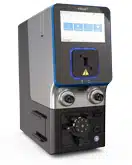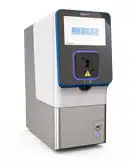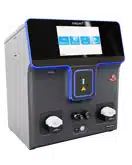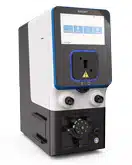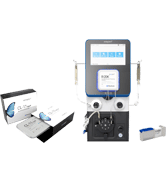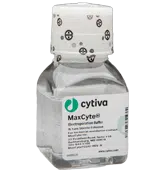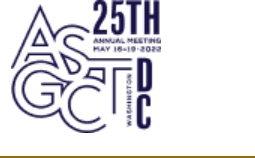
ASGCT 25TH ANNUAL MEETING
Washington, DC
May 16- May 19, 2022
The American Society of Gene and Cell Therapy’s (ASGCT) Annual Meeting, is the premier event for professionals in gene and cell therapy. It is the best place for people in the field to learn from the latest scientific research, stay up to date on new technologies, and make career-advancing connections with peers.
Featured Event
Monday, May 16th from 12-1:30 pm CT
Ballroom B
Presentation: Which industry partner should I collaborate with? A scientists’ journey to implementing an innovative technology
Abstract
At MaxCyte, we take a collaborative approach with our clients to rapidly drive their developmental efforts from research forward to commercialization, safely, and cost-effectively. We partner with cutting-edge academic institutions, translational centers, and biopharmaceutical businesses by providing access to our scalable cell-engineering platform.
With our best-in-class delivery system, our team of scientific experts helps our collaborators unlock the potential of their products by solving development and commercialization challenges. This session will feature success stories from two of our client advocates, Dr. Jonathan Yen and Dr. Alicja Copik. Their talks will showcase MaxCyte’s focus on high-performance cellular editing and our outstanding technical support to enable our customers to use a single unifying technology, from concept to clinic.
Presenters:
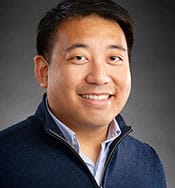
Dr. Jonathan Yen
Director of Therapeutic Genome Engineering (TGEn), St. Jude Children’s Research Hospital
As the current Director of Therapeutic Genome Engineering at St. Jude’s Children’s Research Hospital, Dr. Johnathan Yen has been influential in utilizing our technology from process development to cGMP-manufacturing during his tenure.
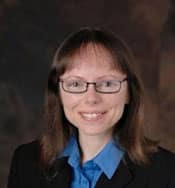
Dr. Alicja Copik
Associate Professor of Medicine at the Burnett School of Biomedical Sciences, UCF and Co-founder of Cyto-Sen Therapeutics, now Kiadis, a Sanofi company
Dr. Copik is an Associate Professor of Medicine and Core Scientist at the University of Central Florida. Her laboratory has developed a clinically relevant protocol for NK cell expansion that is simple, safe, economical, and effective, which can be applied in vitro or in vivo.
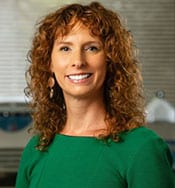
Lesley Eschinger
Director of Market Development, MaxCyte
Lesley Eschinger is the Director of Market Development at MaxCyte. She has been serving in this leadership role for three years managing all the global collaboration efforts. During Lesley’s tenure, she has initiated and directed over 45 successful partnerships with topflight scientists and key opinion leaders across various industries, including academic, translational, and biotechnology.
Scientific Poster:
Poster Board Number: M-210
Presentation Details
Title:
In Vitro Characterization of CD19 CAR T Cells Derived
by Electroporation of mRNA From Labcorp
Session Title: Cancer – Immunotherapy, Cancer Vaccines I
Location: Hall D
Start Time: 5/16/2022 17:30
End Time: 5/16/2022 18:30
Abstract
Cancer immunotherapies reprogram the patient’s immune system to mount a coordinated response against a malignant target. T cells engineered to express Chimeric Antigen Receptors (CARs) represent an effective strategy to target specific cancer cells. Electroporation of mRNA offers several advantages over viral engineering including transient expression of CAR that may limit toxicity, reduce costs associated with viral vector manufacturing and eliminate the risk of virus-associated tumorigenicity. Here, mRNA encoding an anti-CD19 CAR was electroporated into healthy, human T cells using a MaxCyte ATx® instrument. Flow cytometric analysis showed that T cells electroporated with mRNA encoding an anti-CD19 CAR were 86.3% viable post electroporation, and 88% of the live cells were CD3+/CAR+. These engineered cells successfully targeted and killed 100% of CD19-expressing NALM6 target cells, compared to only 20% killing with untransfected controls. In addition, CAR T cells produced proinflammatory cytokines when incubated with CD19-expressing NALM6 cells, while control T cells did not. In this study, we have used MaxCyte electroporation of mRNA to engineer CAR T cells to target CD19-expressing cancer cells. This efficient, non-viral method for generating functional CAR T cells is the foundation for future studies, including scaled-up production and the evaluation of efficacy in animal models, either alone or in combination with biologics. The ability to screen multiple candidates simultaneously would facilitate identification and selection of CARs for more rapid progression through the development pipeline supporting early drug discovery and new preclinical strategies.
Andrew Karalewitz1, James Brady2, Megan Harris2, Mark J. Cameron1
1Preclinical Oncology, Labcorp Drug Development, Ann Arbor, MI,2MaxCyte, Gaithersburg, MD
M.J. Cameron: None.
Presenter:
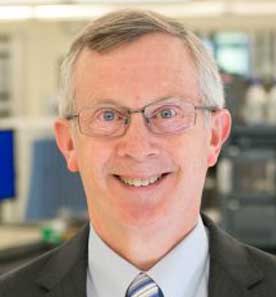
Mark Cameron
Mark Cameron is a 25-year veteran of the bioanalytical, diagnostics and cell and gene therapy industries. Mark has manufactured many types of T cells for clinical studies including TIL (tumor infiltrating lymphocytes), LAK (lymphokine activated killer), IVS (in vitro sensitized), TDLN (tumor draining lymph node), gene modified TDLN and DNA modified TIL. He pioneered the development of large-scale T cell manufacturing process and was among the first to produce gene modified autologous tumor vaccines for clinical studies. He was among the first use allogeneic class I histocompatibility gene DNA for intratumorally injection as a strategy to generate TIL for clinical studies. In his current role at Labcorp, Mark is focused on CAR T-cell production and in vitro characterization for preclinical studies and the shift away from using virus for CAR T-cell production. Mark is a graduate of the University of Michigan and is widely published in journals such as Cancer Research, The Journal of Clinical Oncology, The Journal of Immunotherapy, Cancer Gene Therapy and The Proceedings of the National Academy of Sciences.
